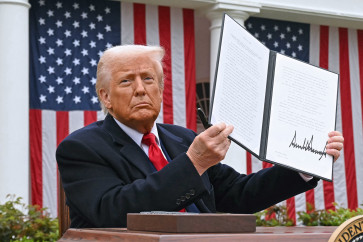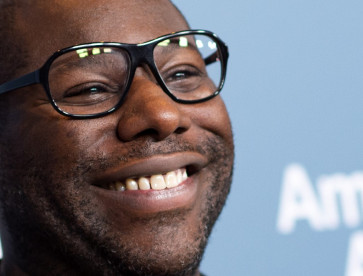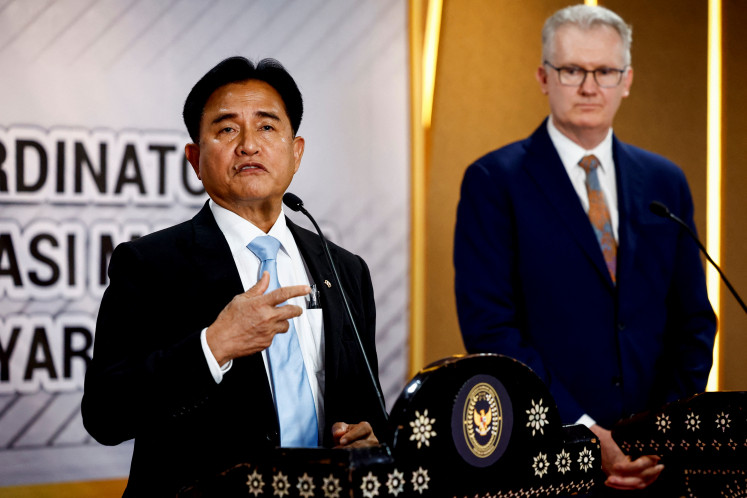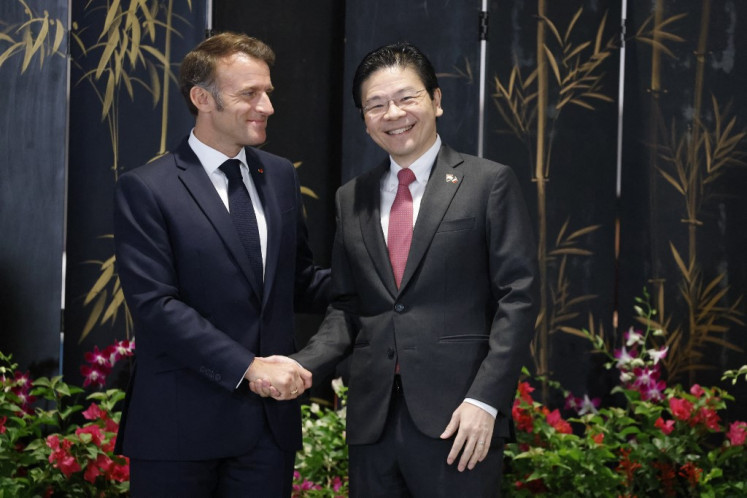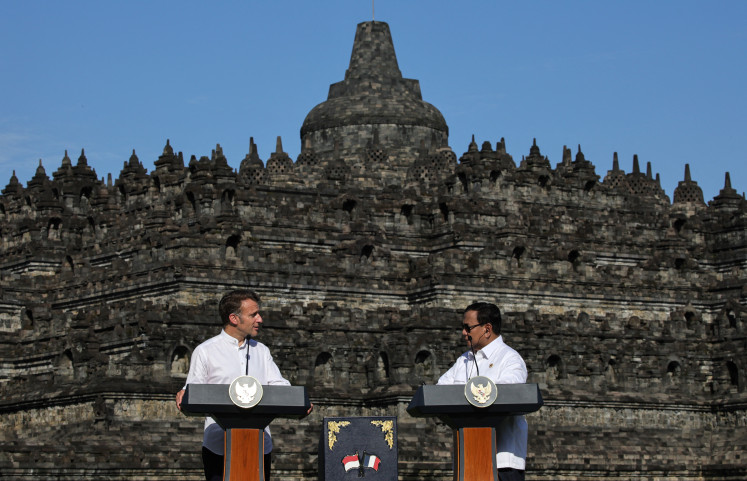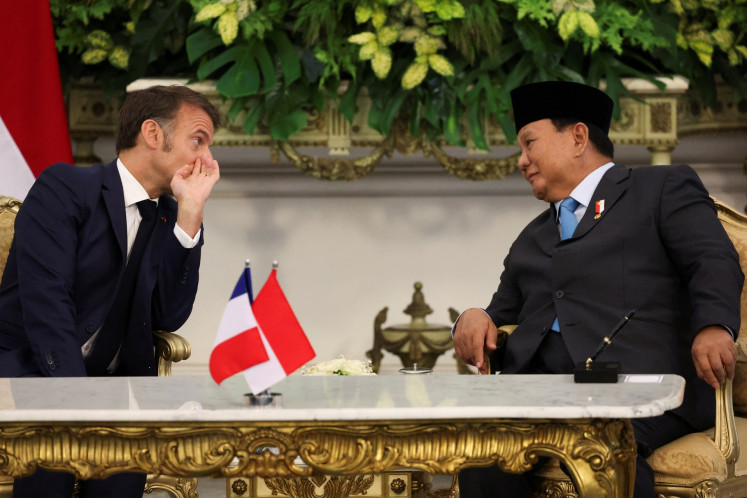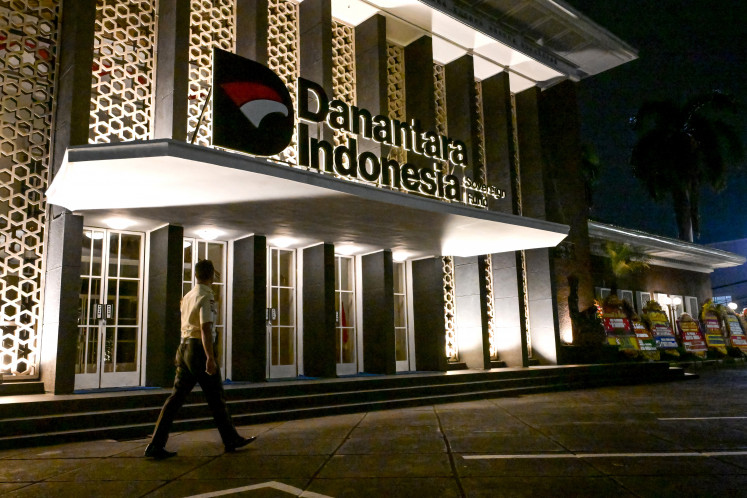How a Gen Z gender divide is reshaping democracy
In democracies worldwide, a political gender divide is intensifying among Gen Z voters, with young men voting for right-wing parties and young women leaning left, a break from pre-pandemic years when both tended to vote for progressives.
Change text size
Gift Premium Articles
to Anyone
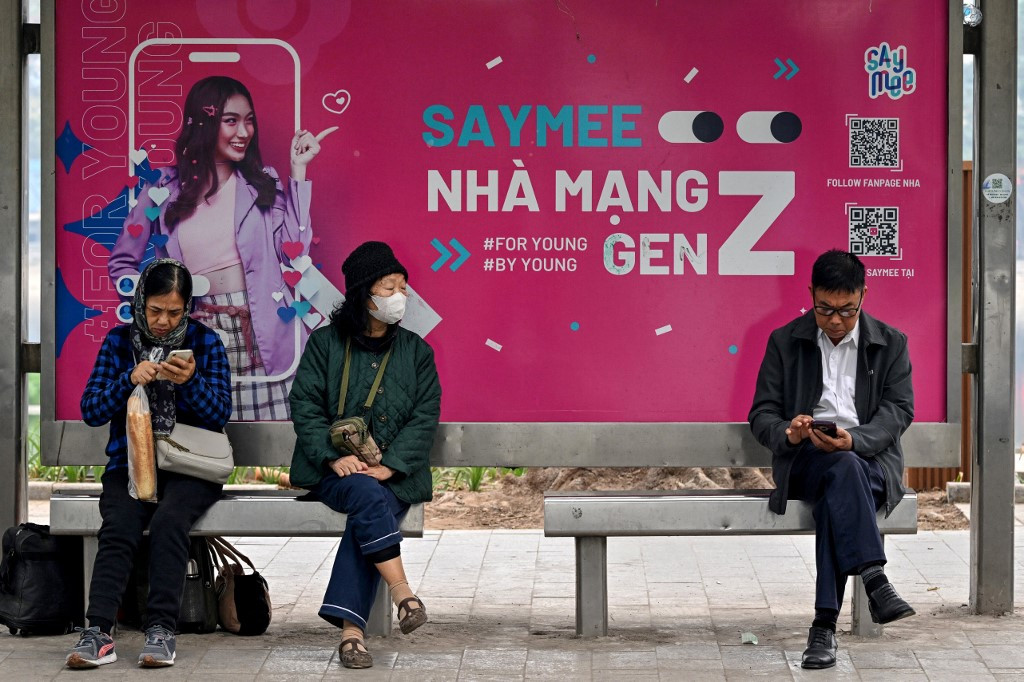 People use their phones at a bus stop, in front of an advertising billboard referencing “Gen Z“, in Hanoi on December 25, 2024. (AFP/Nhac Nguyen)
People use their phones at a bus stop, in front of an advertising billboard referencing “Gen Z“, in Hanoi on December 25, 2024. (AFP/Nhac Nguyen)
S
outh Korea's young women are expected to lead a broad political backlash against the main conservative party at presidential elections on June 3, punishing it for months of chaos.
Multitudes of young men, though, are unlikely to join them.
In democracies worldwide, a political gender divide is intensifying among Gen Z voters, with young men voting for right-wing parties and young women leaning left, a break from pre-pandemic years when both tended to vote for progressives.
Recent elections spanning North America, Europe and Asia show this trend is either consolidating or accelerating, with angry, frustrated men in their 20s breaking to the right.
First-time South Korean voter Lee Jeong-min is one of them.
He says he will vote for the right-wing Reform Party's candidate, Lee Jun-seok, on June 3. Lee, the candidate, vows to shut down the ministry of gender equality, speaking to an issue that resonates with men like Lee, the voter, who particularly resents that only men have to do military service.
"As a young man, I find this to be one of the most unfair realities of living in Korea. At the prime of their youth — at 21 or 22 years old — young men, unlike their female peers, are unable to fully engage in various activities in society because they have to serve 18 months in the military."
In South Korea, almost 30% of men aged 18-29 plan to back the Reform Party compared with just 3% of young women, according to a Gallup Korea poll this month.
Overall, more than half of the men back right-wing parties while almost half the women want the left-wing Democratic Party candidate to win. The divergence shrinks for older age groups.
Political economist Soohyun Lee, of King's College London, said many young South Korean men felt unable to meet society's expectations: find a good job, get married, buy a home and start a family.
And they blame feminism, many believing that women are preferred for jobs. With negligible immigration in South Korea, Lee said, "women become the convenient scapegoat".
Angry young men
In South Korea and other democracies, Gen Z men are seeing an erosion of their relative advantage, especially since the pandemic -- to the point where in a few countries the gender pay gap among 20-somethings favors young women.
EU data shows one of them is France, where men aged 18-34 voted in larger numbers for Marine le Pen's far-right party than women in last year's legislative elections.
In the UK, where more young men than women vote conservative, males aged 16-24 are more likely to be neither employed, nor in education than female counterparts, official data shows.
In the West, young men blame immigration as well as diversity programs for competition for jobs.
In Germany's general election in February, the anti-immigrant Alternative for Germany (AfD) won a record 20.8% of the vote, tugged along by an undercurrent of support from young men -- though the leader of the party is a woman.
Men aged 18-24 voted 27% for the AfD while young women ran to the other end of the political spectrum, voting 35% for the far-left Linke party, according to official voting data.
"A lot of young men are falling for right-wing propaganda because they're upset, they have the feeling they're losing power," said Molly Lynch, 18, a Berliner who voted for Linke, drawn by its stand on climate change and economic inequality.
"But it's actually losing power over women that wasn't actually equal in the first place."
The gender divide is not restricted to Gen Z, voters born since the mid-to-late 1990s. Millennials, aged in their 30s and early 40s, have felt the winds of change for longer.
In Canada last month, men aged 35-54 voted 50% for opposition conservatives in an election turned upside down by U.S. President Donald Trump's tariffs on his northern neighbor. The Liberals, which had been braced for defeat, rode an anti-Trump wave back to power, thanks in large part to female voters.
"It tends to be men who have a bit more life experience and are now in that situation where they're saying, 'This isn't working out for me and I want change'," said Darrell Bricker, global chief executive of public affairs at polling firm Ipsos.
Nik Nanos, founder of Canadian polling outfit Nanos Research, agreed, saying social media was accelerating democracy's "angry young men symptom", especially in areas where blue collar jobs have dried up.
A forever war?
Trump's 2024 presidential campaign, which promised a manufacturing renaissance and attacked diversity programs, also resonated with young white and Hispanic men, but turned off young women, fueling the country's big political gender gap.
Roughly half of men aged 18-29 voted for Trump, while 61% of young women went for his opponent, Kamala Harris. Young Black voters of both genders still overwhelmingly backed Harris.
In Australia, which went to the polls this month, the Gen Z war did not play out at the ballot box. There was no clear divergence, with compulsory voting perhaps helping to explain why radicalized gender politics have not taken root.
"It tends to iron out extreme ideas, ideologies," said political scientist Intifar Chowdury of Australian National University.
So how does the Gen Z war end?
Pollsters said it could drag on unless governments addressed core issues such as home affordability and precarious employment. One cited young men's health as another policy challenge, especially high suicide rates.
Lee, of King's College, said the divide could make consensus on over-arching tax and welfare reforms harder to achieve.
"If the future generation is ever so divided along the lines of gender and then refuses to engage with each other to build social consensus, I do not think we can successfully tackle these huge issues," she said.


